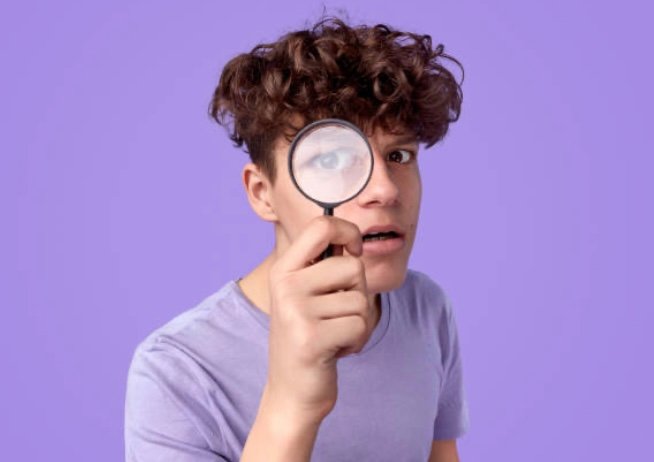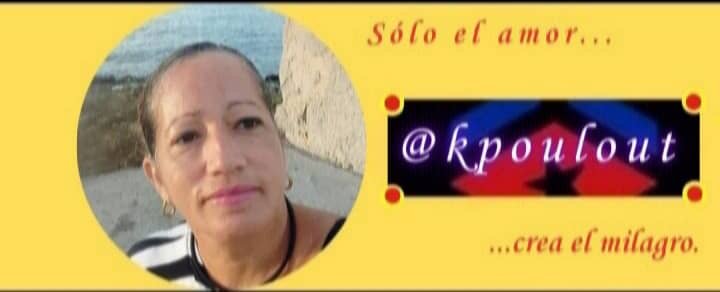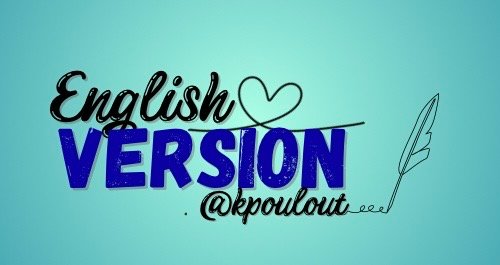Hola, mis queridos amigos. Un gusto saludarlos. Hoy regreso con gran placer a esta comunidad para compartir estas reflexiones, espero la disfruten.

Pixabay
Según la Real Academia de España (RAE) curiosidad es el deseo de saber o averiguar alguien lo que no le concierne. Vicio que lleva a alguien a inquirir lo que no debiera importarle.
Para mí, es algo más simple, curiosidad es un "bichito" que se nos mete adentro y no nos deja, a veces, ni dormir. No hay nada que despierte mayor curiosidad que te digan por teléfono:
_ Tengo algo que contarte, pero será mañana o cuando te vea.
Esa, con certeza, será una noche de insomnio. De inmediato se despierta el bichito que dormía y sus pequeñas antenas comienzan a girar hacia todos lados. Empezamos a imaginar y a fabular en torno a que será eso que no sabemos. Resulta inevitable no pensar.
Pienso que gracias a la curiosidad, esa chispa que arde desde todos los tiempos en el corazón humano, el hombre se lanzó a hurgar en los secretos del universo. Es una fuerza poderosa y a la vez temible porque nunca se sabe lo que se puede desatar luego de cualquier descubrimiento. Y cuando digo descubrimiento, me refiero a cualquier índole.

Pixabay
Las personas curiosas, cuyo espíritu inquieto no se conforma con lo establecido (me incluyo) somos herederos contemporáneos de Pandora, dueños de una llave sorpresa capaz de crear felicidad y a la vez caos.
Ser curioso es un gran riesgo, y como riesgo, hay que asumir sus consecuencias. Siempre he escuchado que hay cosas que es mejor no saberlas, y es verdad. Ciertos secretos, luego de ser revelados, nos cambian la vida, y casi siempre, para mal. Por ejemplo, es muy triste descubrir que una persona no es lo que creíste durante toda tu vida, sino un farsante, un hipócrita, un mentiroso, o dicho en cubano callejero: un fingidor de conducta. Es por eso que en ocasiones es mejor ser ignorantes.

Pixabay
La curiosidad es tatarabuela del invento y del desarrollo de la humanidad, es algo tan fuerte y tan grande, que vence al miedo y a la prohibición. Ya lo dice en refrán: Lo prohibido tienta. Y eso, amigos míos, no falla, es como una ley más de la naturaleza.
Aunque se que es muy difícil controlar la curiosidad, es necesario hacerlo. Recordemos que en el mito, la necesidad de saber de Pandora hizo que salieran de la caja todos los males del mundo, entre ellos: la tristeza, la locura, el vicio, la pobreza. Y solo una cosa quedó atrapada bajo la tapa al cerrarla, la Esperanza. De ahí el origen de la frase: La esperanza es lo último que se pierde. Es por eso que en el conocimiento, usado con sabiduría, se ponen las esperanzas de un mundo mejor.
Las personas curiosas poseen ese ímpetu de conocimiento y siempre se hacen estas preguntas ¿Qué habrá ahí? ¿Cómo funciona? ¿Para qué sirve? ¿Por qué es así? ¿Qué pasaría si entro, si abro, si pregunto..?. El curioso no puede evitar tocar lo desconocido(aunque sepa que se va a "quemar"). La curiosidad, a mí entender, puede ser clasificada tanto como virtud que como defecto, pero de lo que no hay dudas es que ella es quien catapulta los avances de la ciencia y la tecnología.

Pixabay
Si Marie Curie no hubiese sido una "curiosita", no hubiera hecho sus grandes investigaciones sobre la radiactividad (que la llevó a la muerte). En este caso es aplicable aquello de "La curiosidad mató al gato", este es otro refrán muy popular y conveniente de recordar. Son muchos los "curiositos" a través de la historia, Leonardo da Vinci era uno de ellos, quien diseccionó cadáveres para entender su anatomía, cuando hacerlo era considerado un sacrilegio. Sin embargo, ese "sacrilegio" sirvió mucho para la médica y salvar vidas.
Pero a la curiosidad hay que ponerle límites de vez en cuando porque te puede convertir en un chismoso. Utilizarla de forma desmedida puede traer consecuencias indeseadas para nosotros y para otros, puede llevarnos a invadir la privacidad ajena, a destrozar ilusiones, a descubrir verdades que afectan la paz y la armonía. No se trata de reprimir nuestro afán de saber por temor al resultado de lo desconocido, sino de ser cuidadosos y acertivos.
Ser curioso es tener sangre de Pandora, de ahí se deriva entonces el por qué los escritores somos grandes curiosos. Y como se dice que el conocimiento es poder, lo ideal sería usalo para hacer el bien, ya sea para beneficio personal o colectivo.
Por lo pronto, me quedo con estas líneas del tema "Escaramujo" del cantautor cubano Silvio Rodríguez:
...yo vivo de preguntar, saber no puedes ser lujo...

Texto de mi propiedad. Imagenes Pixabay



I'm Curious, Heir to Pandora
Dear friends, it's a pleasure to greet you. Today I return with great joy to this community to share these reflections, which I hope you'll enjoy.

Pixabay
According to the Royal Spanish Academy (RAE), "curiosity" is the desire to know or discover something that doesn't concern you. A vice that leads someone to inquire about what shouldn’t matter to them.
For me, it’s something simpler: curiosity is a "little bug" that gets inside us and won’t let go, sometimes not even letting us sleep. Nothing sparks more curiosity than being told over the phone:
_"I have something to tell you, but it’ll be tomorrow or when I see you."
That will surely be a sleepless night. Instantly, the little bug that was sleeping wakes up, and its tiny antennas start spinning in every direction. We begin to imagine and spin tales about what it could be. Thinking is inevitable.
I believe that thanks to curiosity—that spark burning in the human heart since the dawn of time—humankind set out to probe the secrets of the universe. It’s a powerful yet fearsome force because you never know what might be unleashed after any discovery. And when I say discovery, I mean of any kind.

Pixabay
Curious people, whose restless spirit isn’t satisfied with the status quo (I include myself), are contemporary heirs of Pandora, keepers of a surprise key capable of creating both happiness and chaos.
Being curious is a great risk, and like any risk, we must accept its consequences. I’ve always heard that some things are better left unknown, and it’s true. Certain secrets, once revealed, change our lives—almost always for the worse. For example, it’s heartbreaking to discover that someone you trusted your whole life is not who you thought, but a phony, a hypocrite, a liar—or, as we say in Cuban street slang: un fingidor de conducta (a fake). That’s why sometimes ignorance is bliss.

Curiosity is the great-grandmother of invention and human progress. It’s so strong and immense that it overcomes fear and prohibition. As the saying goes: Forbidden fruit is sweetest. And that, my friends, never fails—it’s like another law of nature.
Though I know it’s hard to control curiosity, it’s necessary. Remember the myth: Pandora’s need to know released all the world’s evils from the box—sadness, madness, vice, poverty. Only one thing remained trapped under the lid: Hope. Hence the phrase: Hope is the last thing you lose. That’s why we place our hopes for a better world in knowledge, wisely used.
Curious people possess this drive for understanding and always ask: What’s in there? How does it work? What’s it for? Why is it like this? What if I enter, open, ask…? The curious can’t resist touching the unknown (even if they know they’ll "get burned"). To my mind, curiosity can be both a virtue and a flaw, but there’s no doubt it’s what propels advances in science and technology.

Pixabay
If Marie Curie hadn’t been a curiosita (a curious one), she wouldn’t have conducted her groundbreaking research on radioactivity (which led to her death). Here, the saying "Curiosity killed the cat" applies—another popular and fitting proverb. History is full of curiositos: Leonardo da Vinci was one, dissecting corpses to understand anatomy when doing so was considered sacrilege. Yet that "sacrilege" greatly benefited medicine and saved lives.
But curiosity needs limits now and then—it can turn you into a gossip. Using it recklessly can bring unwanted consequences for us and others. It may lead us to invade privacy, shatter illusions, or uncover truths that disrupt peace and harmony. It’s not about repressing our thirst for knowledge out of fear of the unknown, but about being careful and discerning.
To be curious is to have Pandora’s blood—that’s why writers are such great curiosos. And since knowledge is power, the ideal is to use it for good, whether for personal or collective benefit.
For now, I’ll leave you with these lines from "Escaramujo" by Cuban singer-songwriter Silvio Rodríguez:
"...I live by asking, knowing cannot be a luxury..."

Text my own. Images Paxabay


